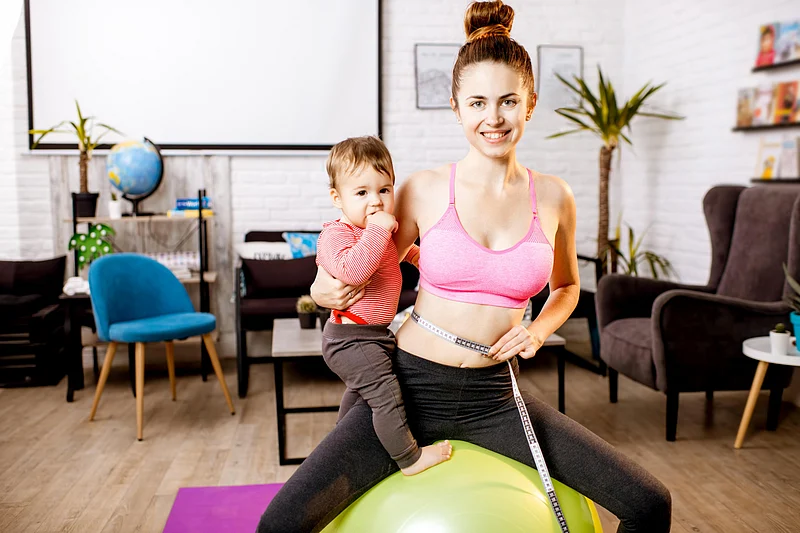Get Healthy!

- Ernie Mundell
- Posted October 6, 2022
Instagram 'Post-Baby' Body Shots Don't Reflect Average Women, Study Finds
Millions of women routinely check Instagram after giving birth, only to see posts by other new moms showing off how fast they got back into svelte shape.
Of course, photos like those can be a real downer for women who don't have the time or resources to lose pregnancy weight that quickly. Are they "failures" for not doing so?
No, say Australian researchers who published the new findings recently in the journal Healthcare. The study will also be presented Oct. 18-22 at the International Congress on Obesity in Melbourne, Australia.
The investigators found that the average woman probably does not post Instagram "postpartum body" shots. Those who do post may give Instagram users a skewed version of what a postpartum figure is supposed to look like.
The sexy, slim body photos that new moms typically see "are presenting an 'idealized' version of the postpartum body, which may contribute to body dissatisfaction in postpartum women who view such imagery and may already be struggling with feelings of inadequacy," study lead author Dr. Megan Gow said in a meeting news release. She's from the Children's Hospital Westmead Clinical School at the University of Sydney.
For years, harried new mothers -- squeezed between the pressures of working and raising kids -- have had to look at photos of celebrity moms who've used diets and personal trainers to get back into shape within weeks of delivering a baby.
Now, everyday moms lucky enough to have similar resources are showing off the same way on Instagram, Facebook and other social media sites.
But how realistic are these photos?
Gow's team first discovered that there were over 2 million images hashtagged #postpartumbody that had already been posted on Instagram by September 2022, when they'd completed their research.
That means that #postpartumbody images were being posted to Instagram at a rate of about 1,000 per day.
Gow's group analyzed 409 #postpartumbody Instagram images focused on women. They assessed the women's photos using criteria such as estimated amount of body fat, levels of muscularity, the way the women posed and what they wore.
Their findings: More than a third (37%) of the women in the photos had low body fat levels, another 54% had what were considered average body fatness, and just 9% had what would be considered high body fat, the Australian researchers said.
Nearly half (48%) of the photos of these postpartum women had what the researchers called either 'visible' defined muscles or a high level of muscle definition. Four out of every 10 women in the photos were wearing workout clothes.
The researchers' conclusion: "Women with lower body fat, and in fitness attire, are more likely to post images of themselves on Instagram than women of higher adiposity [body fat]."
They also believe that "viewing such imagery may worsen body satisfaction at this already vulnerable life stage."
Gow's advice to Instagram, or to anyone posting #postpartumbody images: Try and keep it real. Since Instagram is popular with postpartum women, "the inclusion of health information may be necessary to interrupt the potentially harmful content observed in our study."
More information:
For advice on healthy postpartum weight loss, see the Cleveland Clinic.
SOURCE: International Congress on Obesity/Healthcare, news release, Oct. 5, 2022







